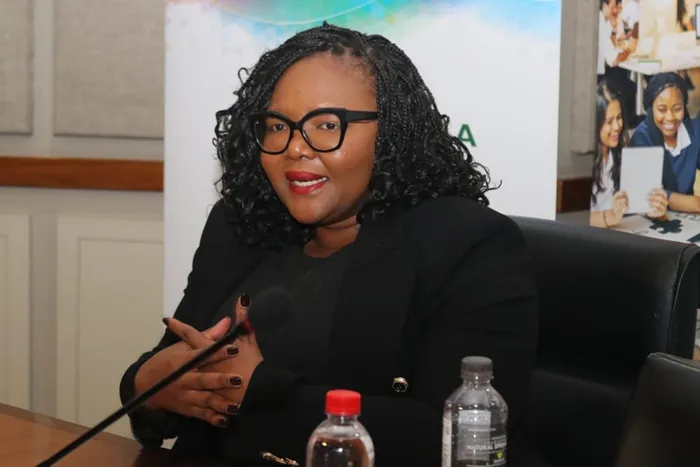KwaZulu-Natal identified as a hotspot for school violence

Basic Education Minister Siviwe Gwarube said there are 24,000 schools in the country, and 286 of them are situated in areas identified as hotspots for crime.
Image: Facebook
KwaZulu-Natal has been flagged as one of the hotspots for school violence in the country. The Department of Basic Education (DBE) has stated that statistics show that half of the murders that occurred in schools in the last financial year took place in this province.
Gauteng, KwaZulu-Natal, Eastern Cape and the Western Cape have been identified as the four provinces of concern regarding general crime and criminality in the country.
The pressing issue was raised during a meeting between the Minister of Basic Education, Siviwe Gwarube and the Minister of Police, Senzo Mchunu, earlier this week. The two have signed a school safety protocol aimed at enhancing safety in schools.
Gwarube said statistics show KZN is one of the provinces of particular concern. She noted that in the last financial year, there were 28 murders in schools, with half of them occurring in KZN.
Additionally, she reported that 11 000 burglaries took place in schools across the country, ranging from petty theft to the theft of school nutrition supplies.
Gwarube emphasised that addressing the state of violence in schools requires a plan that goes beyond merely lamenting the issue and visiting victims’ parents. “Some of the issues that we see in schools are not even problems that teachers are equipped to deal with. We need searches and seizures; pupils are bringing weapons to school, terrorising teachers. Violence manifests in rape; therefore, it goes beyond lamenting how violent society has become and how schools are becoming violent,” she said.
She mentioned that there are 24 000 schools in the country, and 286 of them are situated in areas identified as hotspots for crime.
Mchunu added that their statistics indicate an increasing number of violent incidents occurring in schools across the country.“There are incidents of murder, rape, and extortion in schools. Parents must know if their child is going to school with a paper and pen or with a knife and gun. It is your child; take responsibility and ensure your child is ready for school, not for a fight,” he stated.
Vee Gani of the KZN Parents’ Association stated that it is not surprising KZN is a hotspot, given that it has the largest number of learners in the country.
He added that while schools have a code of conduct, they were not addressing bad behaviour if children did not follow the rules.
He said that dealing with problems in schools will not be addressed by police alone, and all of society must engage. “Where are the parents? They should be playing the biggest role; these are their children, after all,” he stated.
Matakanye Matakanya, general secretary of the National Association of School Governing Bodies, said the situation can be improved, especially in KZN. “In KwaZulu-Natal in particular, we have hope because of the provincial commissioner Nhlanhla Mkhwanazi. (For) the rest, we do not have hope; all these years they keep signing these protocols, but the situation remains. “Our children, teachers and other workers in our schools remain vulnerable. We call upon parents and communities to stand up and support schools through SGBs (school governing bodies). SGBs must strengthen the policies in schools and report these incidents to the police and DBE,” he said.
DA spokesperson on education in KZN, Sakhile Mngadi, expressed concern, stating, “The identification of KwaZulu-Natal as an epicentre of school violence is deeply alarming. From the tragic shooting of a teacher on school grounds to numerous cases of learners being stabbed or assaulted, our schools are becoming war zones instead of safe spaces for learning.”
He said the party welcomed the Memorandum of Understanding signed with the national police to enhance school safety.
“We urge the KwaZulu-Natal Department of Education and SAPS to urgently replicate this collaboration in the province.”
He said school safety cannot be treated as an afterthought. It must be a coordinated, interdepartmental priority. “We need visible policing around high-risk schools, stronger partnerships with communities, and urgent psychosocial support for both learners and teachers.”
The South African Democratic Teachers Union noted the prioritisation of hotspot provinces—KwaZulu-Natal, Eastern Cape, Western Cape, and Gauteng—but urged that equal attention be given to all provinces. Violent incidents also occur in areas where they may go unreported due to the limited presence or accessibility of police services, the union noted.
Related Topics: